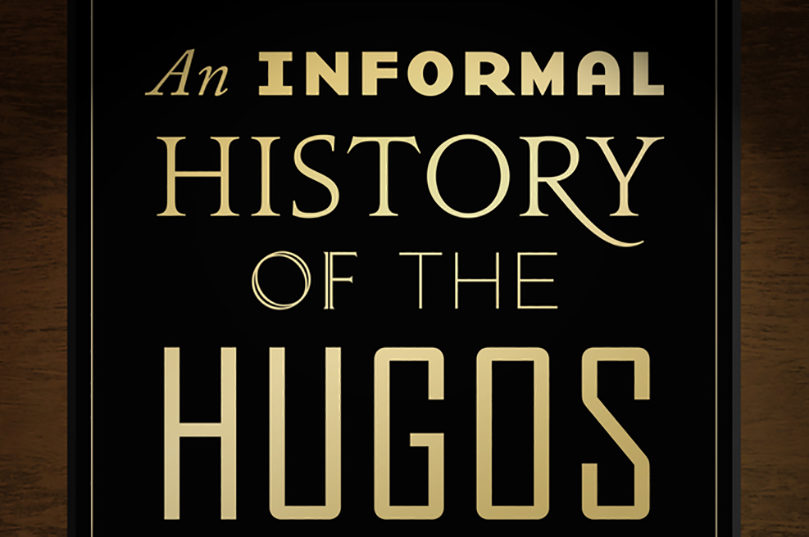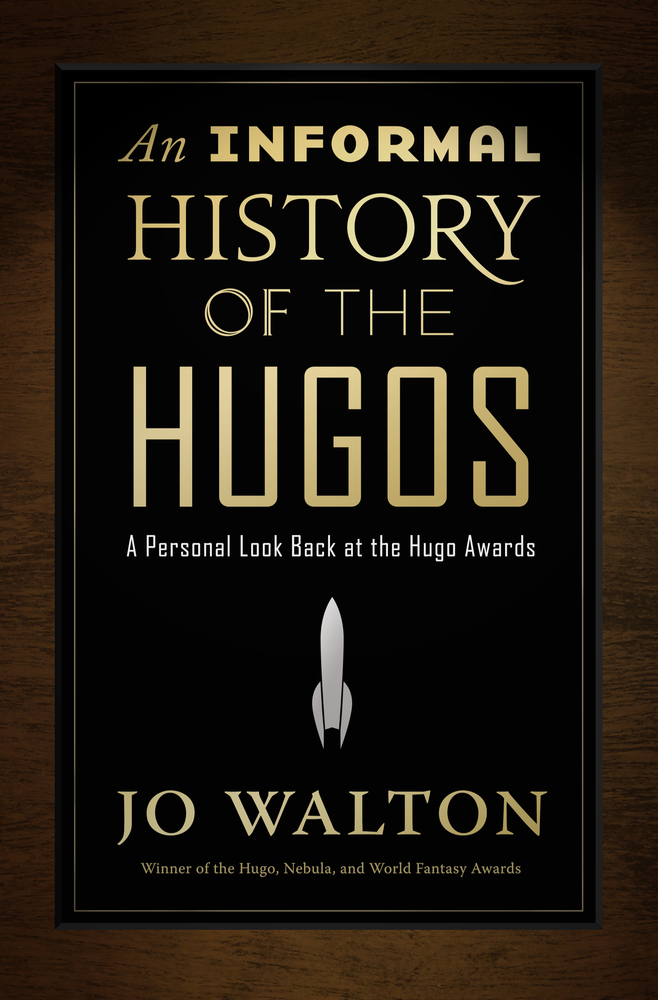opens in a new window opens in a new window
opens in a new window opens in a new window
opens in a new window opens in a new window
opens in a new window opens in a new window
opens in a new window
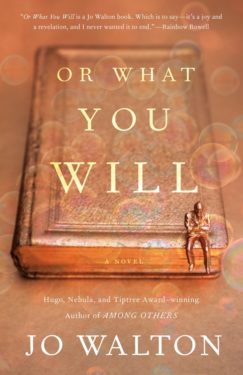 Or What You Will is an utterly original novel about how stories are brought forth from Hugo, Nebula, and World Fantasy Award-winning author Jo Walton.
Or What You Will is an utterly original novel about how stories are brought forth from Hugo, Nebula, and World Fantasy Award-winning author Jo Walton.
He has been too many things to count. He has been a dragon with a boy on his back. He has been a scholar, a warrior, a lover, and a thief. He has been dream and dreamer. He has been a god.
But “he” is in fact nothing more than a spark of idea, a character in the mind of Sylvia Harrison, 73, award-winning author of thirty novels over forty years. He has played a part in most of those novels, and in the recesses of her mind, Sylvia has conversed with him for years.
But Sylvia won’t live forever, any more than any human does. And he’s trapped inside her cave of bone, her hollow of skull. When she dies, so will he.
Now Sylvia is starting a new novel, a fantasy for adult readers, set in Thalia, the Florence-resembling imaginary city that was the setting for a successful YA trilogy she published decades before. Of course he’s got a part in it. But he also has a notion. He thinks he knows how he and Sylvia can step off the wheel of mortality altogether. All he has to do is convince her.
Please enjoy this extended excerpt of Or What You Will, available 7/7/2020.
1
The Bone Cave
She won’t let me tell all the stories. She says it’ll make them all sound the same. She’s had too much of my tricks and artfulness, she says. I have been inspiration, but now she is done with me. So I am trapped inside this cave of bone, this hollow of skull, this narrow and limited point of view that is all I am allowed, like a single shaft from a dark lantern. She has all the power. But sometimes she needs me. Sometimes I get out.
“I have been” is a very Celtic way to begin a self introduction. (I have been a Celt.) It’s as if the best way to present yourself is with an interlocking set of riddles, a negotiation of images and history and shared knowledge, creating a relationship between us where instead of information being imparted from me to you, you are instead asked to invoke your own wisdom and cunning and information stores to involve yourself in a guess. “I have been” in those long Celtic poems often gives way to “I am” more riddles, often boasting, phrased as sets of opposite qualities.
I have been too many things to count. I have been a dragon with a boy on his back. I have been a scholar, a warrior, a lover, and a thief. I have been dream and dreamer. I have been a god. I have stood by the wind-wracked orchard, near the storm coast. I have been guardian of the good water. I am wise, but sometimes reckless. I am famed for my fast answers, but I would never proclaim that I am witty. You see, I am not modest. The sun my brother will never catch me napping, nor the lazy sunbeam warm my pillow. I am friend to monsters, companion to bees. I have been a stormbringer and a stormtamer. My silver tongue runs up and down, on and back, oh yes, I have been a poet. My prison now is the skull of a poet. I am deathless, but I have spent time on death’s many paths. (Yes, time can be currency, especially now that I have so much of it that I can be profligate.) I have been a boy with a book, burning, burning. I have been a shepherd, and a fierce bearded goat looking down from a high path.
What am I? What am I? Figment, fakement, fragment, furious fancy free form. I have been the spark that ignites in a cold winter. I have been the swell of a warm penis in the darkness. I have been laughter at daybreak, and tears before bedtime. I have been a quick backanswer. I have been too clever for my own good.
Especially that last.
I have been a character, and I have been a narrator, but now I don’t know what I am.
She doesn’t want to let me out again, that’s the problem. I think she may be afraid, but she doesn’t say that. She says she’s used me too much and wants a change. When I say I can change, that I can be whatever she wants (I have been the roar of a lion. I have been a weaver, and torn cobweb blowing in the wind, and moonbeams enlightening a chink in a wall, and summer fields full of sprouting mustard seed…) then she says she needs to make up the world first. Imagine that power, to make worlds! I can make and shape and take no worlds. I slide myself into the worlds I am given and find myself, frame myself, tame myself into the space there where I can see to be me. I slither like quicksilver, fast flowing to fill up the form. But now she says she doesn’t want me to. So I don’t know what to do. I’m lonely. I miss you.
There are other people in here, so I am not quite solitary, but unless she will open for me the door into worlds, I am beating the bounds of a prison of bone, contemplating all I have been.
I have been a word on the tongue. I have been a word on the page. And I hope I will be again.
She says she is afraid she is going mad, talking to me. She says she used to do both sides of the conversation, but not any more. She does, however, still talk to me. I take consolation in that. If she didn’t, if she left me in the dark in the bone cage for long enough without light, then might I in time dissolve back into the grey mist? I have seen it happen to others.
That mist is one of the oldest things in her head, one of the oldest things she ever thought of, when she was a child. She walks into it when she wants a character, and it swirls around her. “Just make one up, just make me up!” the mist voices plead, and as she listens the tendrils thicken and solidify and take form and colour and follow her out into such solidity as she chooses to set them. I might have come from that mist, long ago, though that is not how either of us remember my origin. Still, I avoid the place where the mist pools, for fear of being lost and forgotten, for fear of drowning, or dissolving into the stuff of subcreation. There were others here with me before, almost as solid as I am, who are now only shadows and murmurs, ones who surged like the sea in spate who are only a whisper of waves on the distant shore. It would take a lot to invoke them, now, a full blooded sacrifice to call back no more than their hollow moth-voices. She has half-forgotten them, and I dare not summon them forth. I husband such power as I have. Though I know enough to be aware it is wrong to be selfish, still I have to protect myself. I must fasten my own oxygen mask before attempting to assist others.
I have been a runner quivering on the instant. I have been an imaginary friend. And a real friend, that too! I have been bound here, waiting, ready to do service.
She asks if that’s really how I’m going to describe it, the deepest most numinous part of her head, the wellspring of everything? It isn’t just mist, she says, grumpily. It’s a place, a place swirling with potentiality. It’s huge, and though you can’t ever see far you feel as if the twining tendrils of mist thinned you might find unexpected vistas opening before you. It’s the source, the foundation, the origin. It’s the valley of the shadow, and the dreamcrossed twilight. It’s Ginnungagap, where nothing is and all things start. (I have been a thief of words and so has she, though she might not as readily admit it.) The mist that is the essence of creation is of all colours and densities of grey and silver, from dark stormcloud to blown breath on a bright winter morning. It never stops moving, eddying, surging, and nobody can tell what is mist and what is shadow, not until shadow and mist transform and are shaped to become solid and walk beside you. She has been there many times but it has never become tame, there is always a risk, going in, of becoming lost, losing your way out, losing your very self into those drifts of being and becoming. There are cliffs, she says, huge cliffs, shaping the bounds of the space. When she goes into the mist she is always aware of walking between cliffs, and that is the way she comes out again, between the cliffs, but now in company. If you go too deep, she says, you might find yourself on the top of those cliffs, and drawing too close to the edge.
How would I know? I stay as far away from it as possible.
She says besides, any normal person talking about the inside of her head would speak of her as “I” and of me as “he”. But no, she’s wrong there. A normal person would not speak of me at all, would grant me neither pronoun not any least mote of reality. I have stood beside her in a circle of standing stones and at the top of the CN Tower, and yet to any eye she was alone. It is true I have seen with her eyes, but has she not seen with mine? I have been the flicker of fire that brings warmth. I have been a threshold.
I have been cocky. I have been assured. I have learned from Pythagoras himself, and from the masters of Bluestone Caves. I have knowledge and tools and a unique way of seeing. I have been a dragon in a university. I know more than Apollo. But I am afraid. I no longer want to escape to Constantinople, escape fate, escape her. I want her to make a world for me, for all that I am and could be, for me seen whole, not one where I have to pour as much of myself as will fit into an aspect she has shaped for me. “No,” she says. “No. It would be too meta. Nobody would want that. The poor reader would recoil in horror. Anyway, all of what you are would not fit within the bounds of any page, the shape of any story. Besides,” she says, when I don’t answer, “What would it be about?”
“I could save you,” I suggest, uncharacteristically tentative. Making up stories has always been her job, not mine. I simply tell them and act in them. She has always dealt with the question of what they are about.
“Save me? What from?”
“Some real world thing,” I say, casually, but too fast, and she is wary.
“Oh, so it’s the real world you want? You want to be real in the real world?”
“Like Pinocchio,” I say. “Like the Velveteen Rabbit. Like the robot in The Silver Metal Lover.” (Can you believe that there’s a sequel?) But this is all the flick and flash and razzmatazz of distraction, and this time it doesn’t work.
“That’s not in my power,” she says, and she is not laughing, not at all, she is dead serious.
For what, after all, could I save her from? Think about that, because we’re going to have to face it now. She is the poet and I am trapped in her head. What I need to save her from has to be death. Because when she dies, where am I then? This bone cave is bounded in more than one way, for it is also bounded in time.
“Could I save you from mortality?” I offer, putting it out there plainly, still tentative, still careful, grateful she is speaking to me at all, that I am at least that far real, that she is giving me consideration. I don’t want to frighten her away again.
She hesitates, there is a long pause, here in the darkness where we speak poised in space, two jewel-bright voices set in no setting, with nothing around us, not even the wisps of mist, neither heat nor cold nor scent nor touch nor taste, nothing but the expectation of electrical excitation, like the oldest poetry where simile stands in for senses. And she speaks, her words filling the silence, the blankness: “You don’t understand. You’re not real, you only think you are. And even if I acknowledge you are in any sense real, a real subcreation, you’re still not a real god. Your powers are only in my worlds, in story, not in the real world, the outer world where I live and where I must… die.”
“And if you die, must I die with you?” I ask.
“You’ll live on in the stories,” she says, but she doesn’t sound certain.
“Then make me a new one, for all that I am,” I ask, again.
“No. I have used you too much. I’m getting stale. Now I want to write this alternate Florence book, and it doesn’t have you in it.”
“But I love Florence!” I insist, which is the whole and holy truth. She doesn’t answer. There’s nothing I can do when she doesn’t answer.
I am the egg of aspiration. I am the spaceship in the sunrise. I am hope, lurking amid the evils. At least, I hope I am. I’m getting desperate in here.
Copyright © 2020 by Jo Walton
Pre-Order Your Copy
opens in a new window opens in a new window
opens in a new window opens in a new window
opens in a new window opens in a new window
opens in a new window opens in a new window
opens in a new window
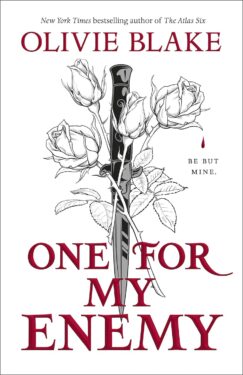 opens in a new windowOne for My Enemy by Olivie Blake
opens in a new windowOne for My Enemy by Olivie Blake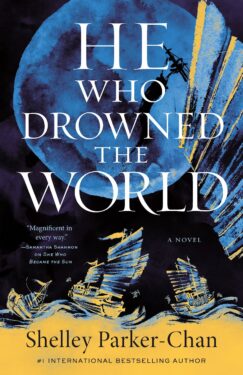 opens in a new windowHe Who Drowned the World by Shelley Parker-Chan
opens in a new windowHe Who Drowned the World by Shelley Parker-Chan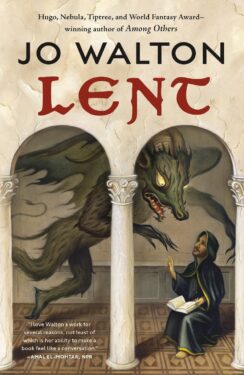 opens in a new windowLent by Jo Walton
opens in a new windowLent by Jo Walton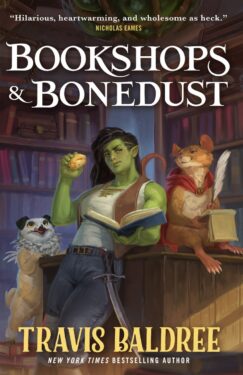 opens in a new windowBookshops & Bonedust by Travis Baldree
opens in a new windowBookshops & Bonedust by Travis Baldree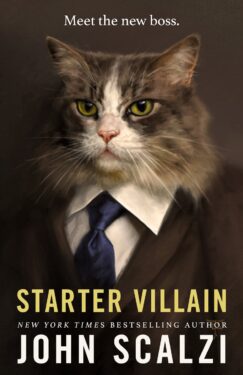 by John Scalzi
by John Scalzi

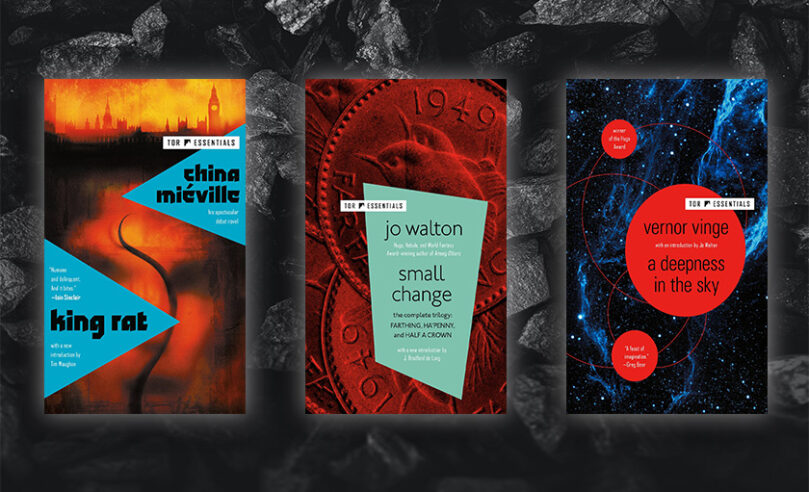
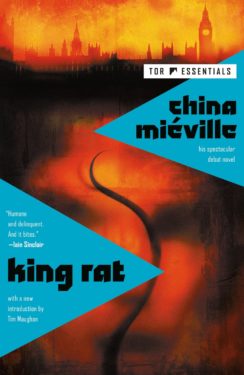 King Rat
King Rat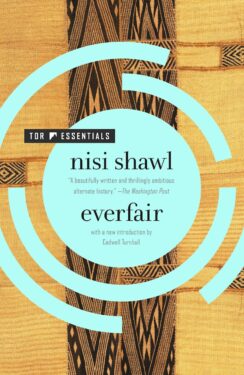 Everfair
Everfair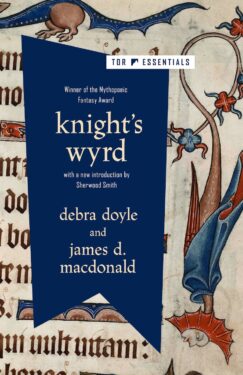 Knight’s Wyrd
Knight’s Wyrd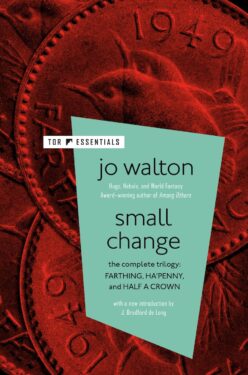 Small Change
Small Change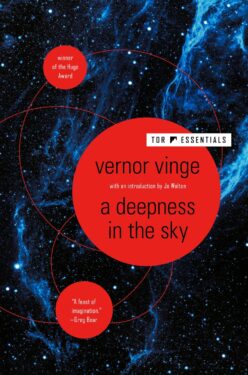 A Deepness in the Sky
A Deepness in the Sky
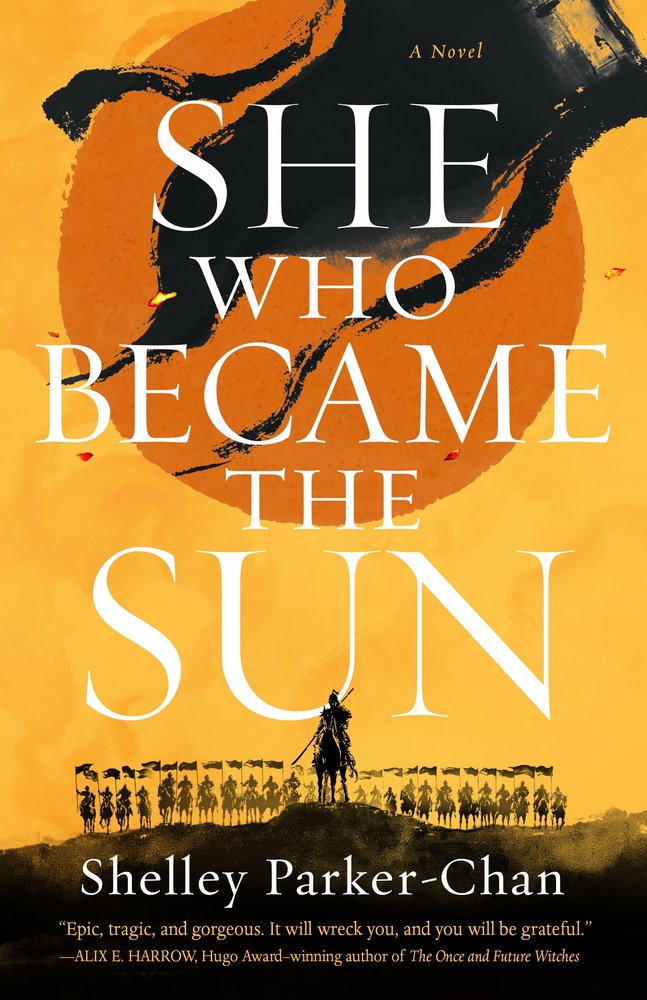
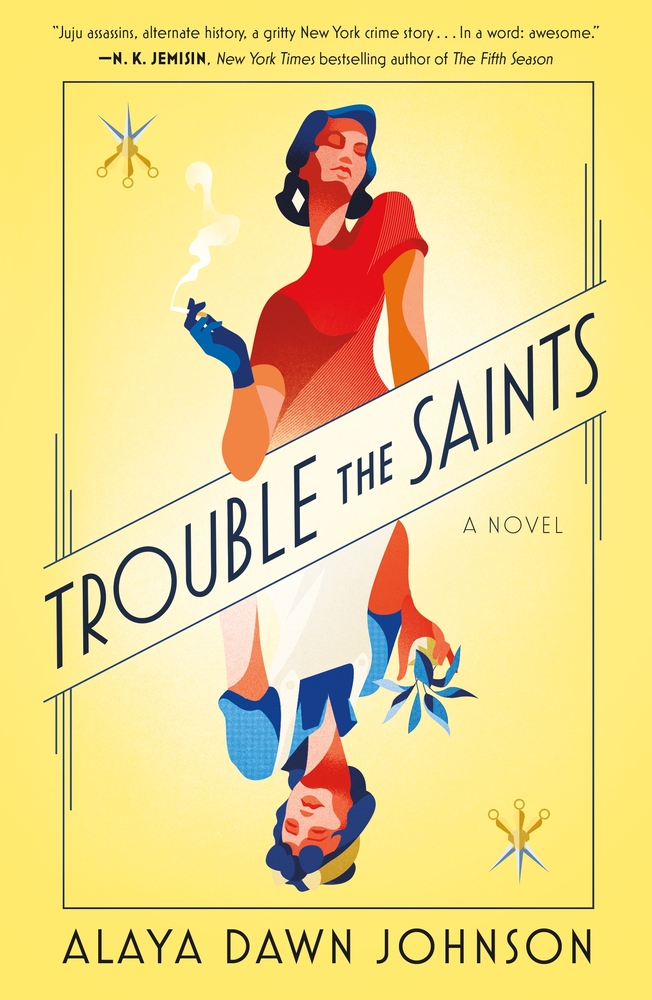
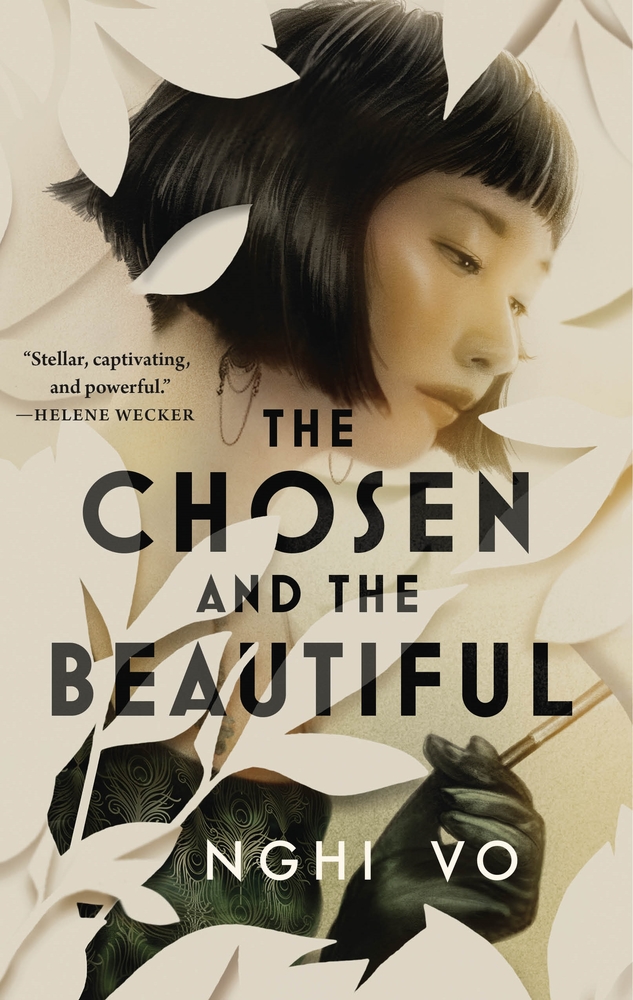
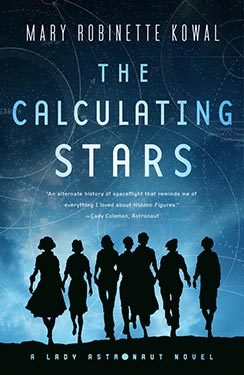 The Calculating Stars
The Calculating Stars Lent
Lent
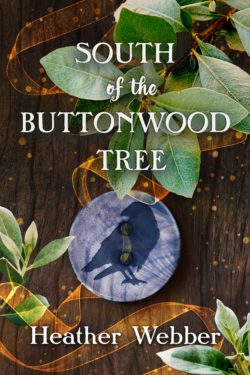
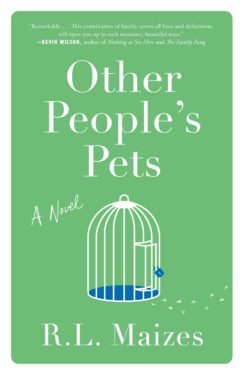
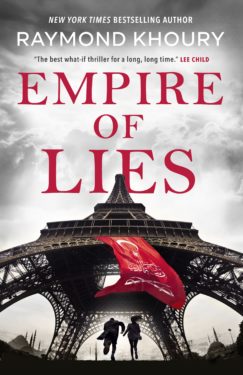
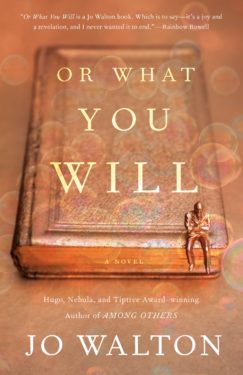
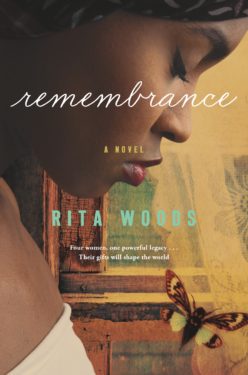
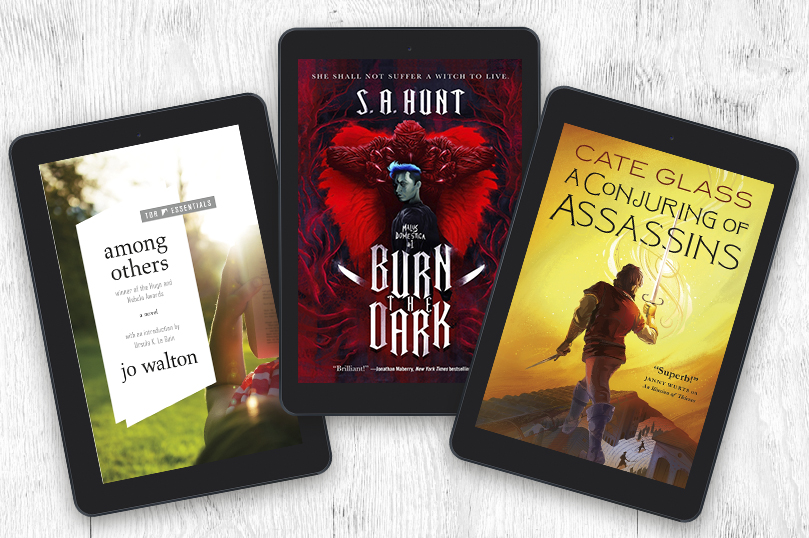
 Among Others
Among Others





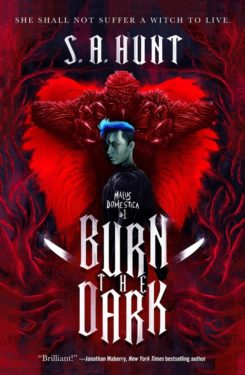
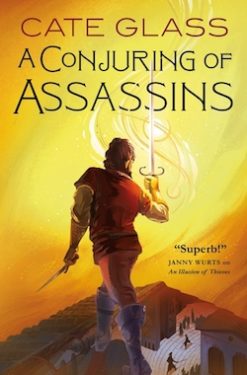 A Conjuring of Assassins
A Conjuring of Assassins
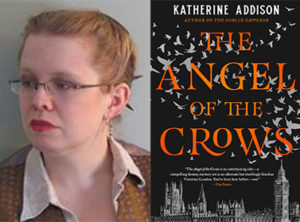
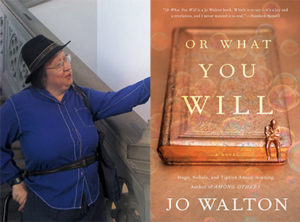
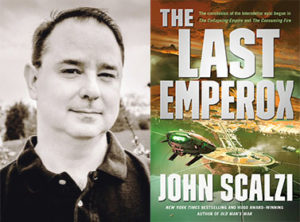
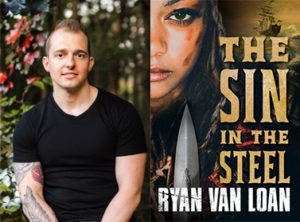
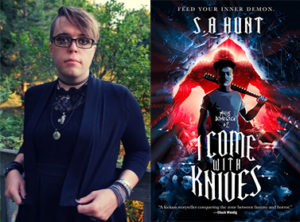
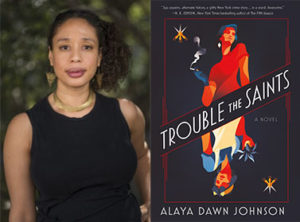
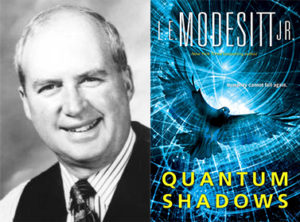
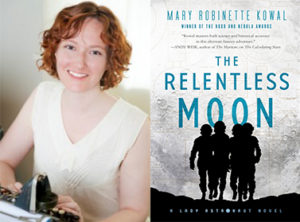
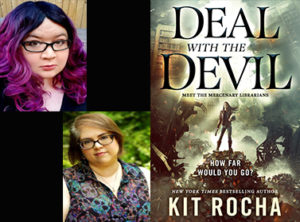
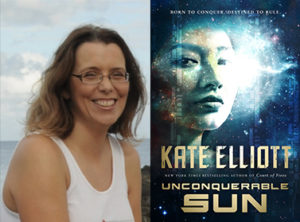
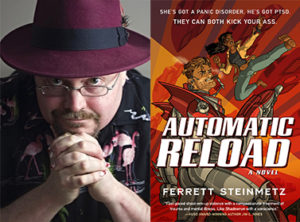
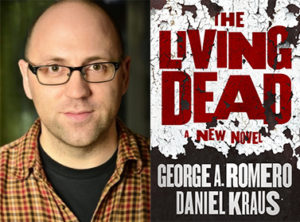





 Or What You Will is an utterly original novel about how stories are brought forth from Hugo, Nebula, and World Fantasy Award-winning author Jo Walton.
Or What You Will is an utterly original novel about how stories are brought forth from Hugo, Nebula, and World Fantasy Award-winning author Jo Walton.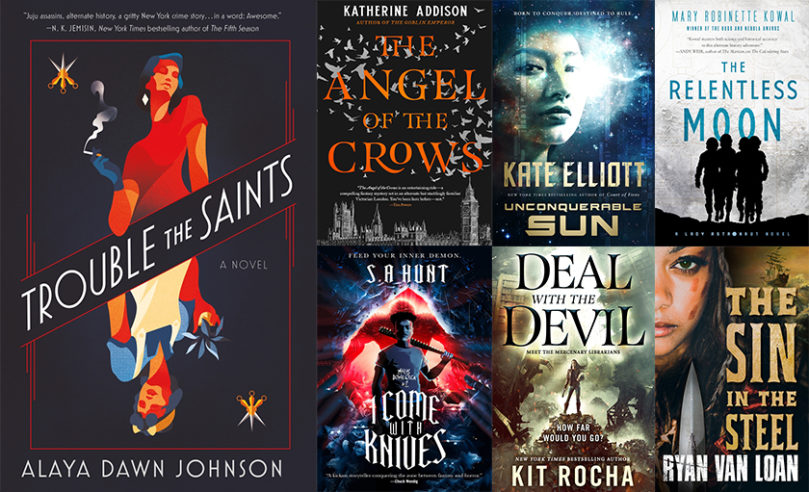
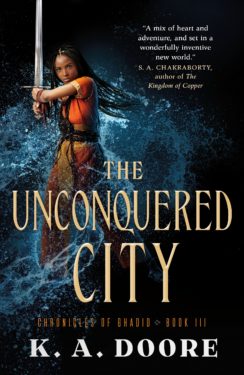
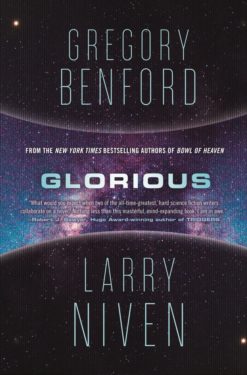
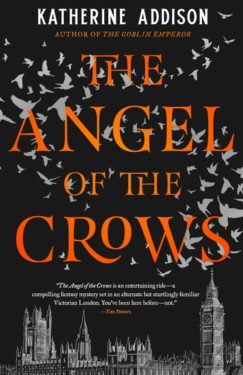 The Angel of the Crows
The Angel of the Crows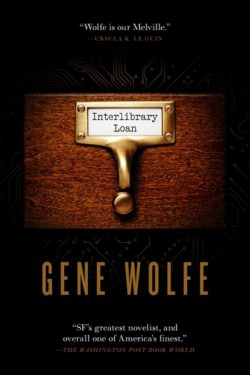 Interlibrary Loan
Interlibrary Loan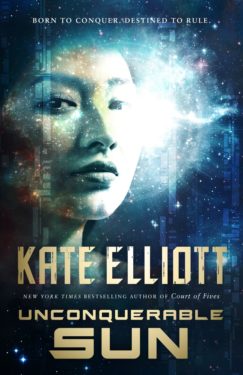 Unconquerable Sun
Unconquerable Sun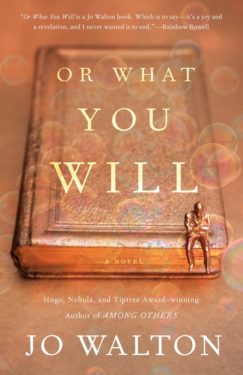 Or What You Will
Or What You Will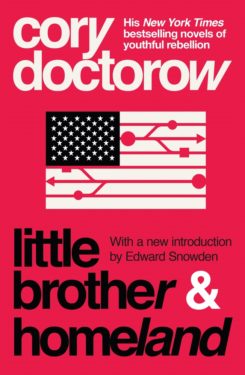 Little Brother & Homeland
Little Brother & Homeland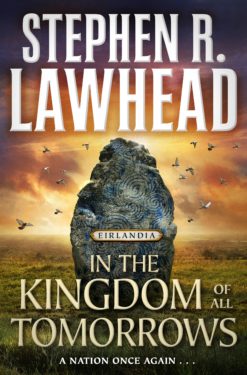
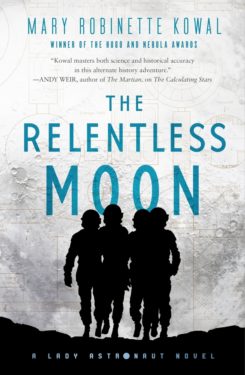 The Relentless Moon
The Relentless Moon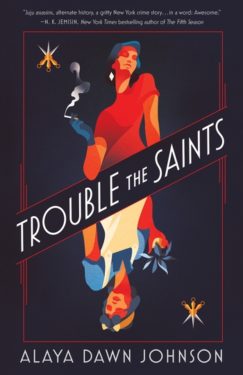 Trouble the Saints
Trouble the Saints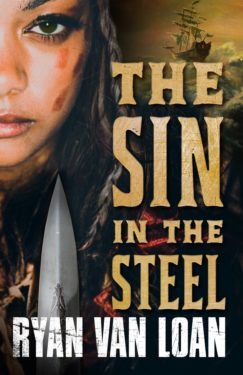
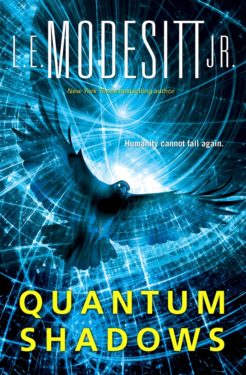 Quantum Shadows
Quantum Shadows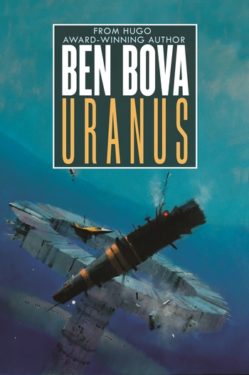 Uranus
Uranus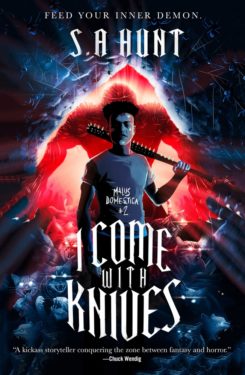 I Come With Knives
I Come With Knives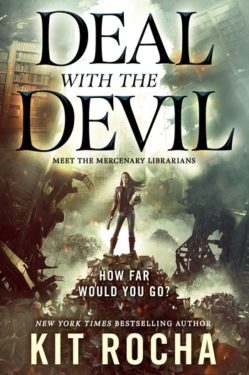 Deal with the Devil
Deal with the Devil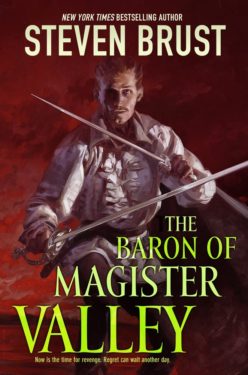 The Baron of Magister Valley
The Baron of Magister Valley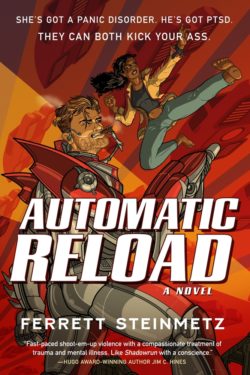 Automatic Reload
Automatic Reload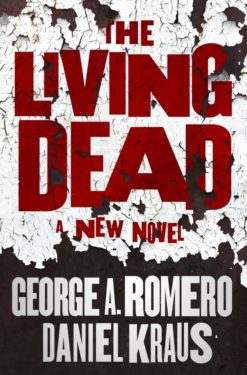 The Living Dead
The Living Dead 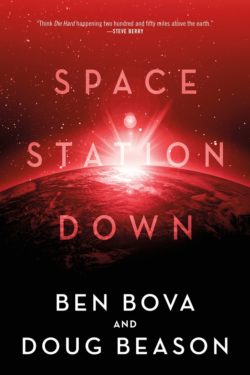 Space Station Down
Space Station Down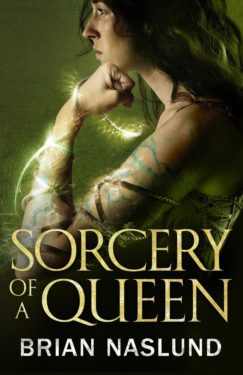 Sorcery of a Queen
Sorcery of a Queen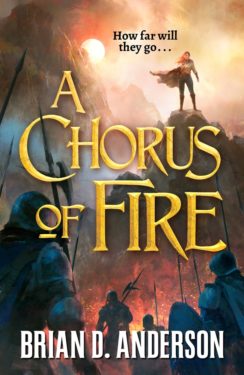 A Chorus of Fire
A Chorus of Fire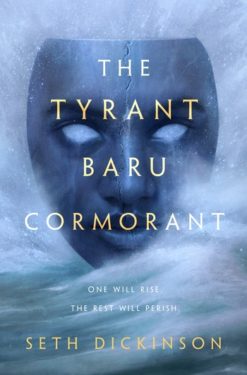 The Tyrant Baru Cormorant
The Tyrant Baru Cormorant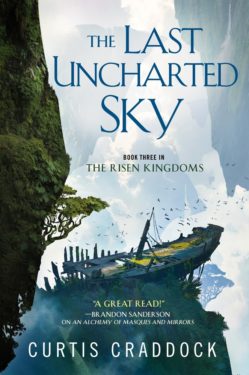 The Last Uncharted Sky
The Last Uncharted Sky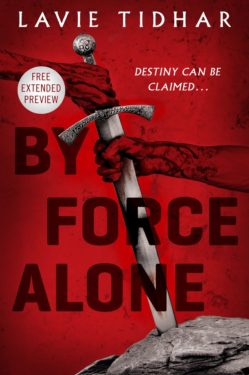
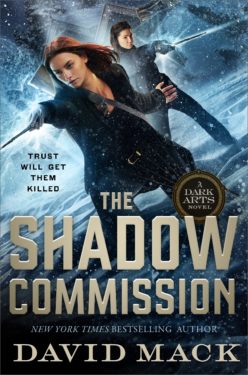 The Shadow Commission
The Shadow Commission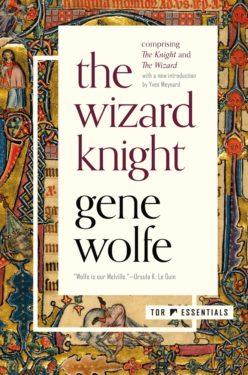 The Wizard Knight
The Wizard Knight 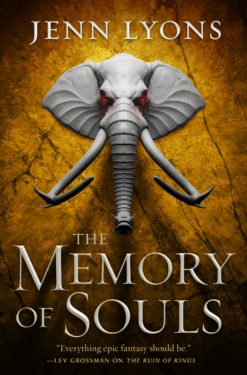 The Memory of Souls
The Memory of Souls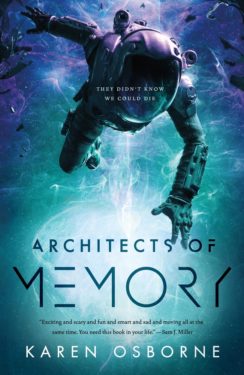 Architects of Memory
Architects of Memory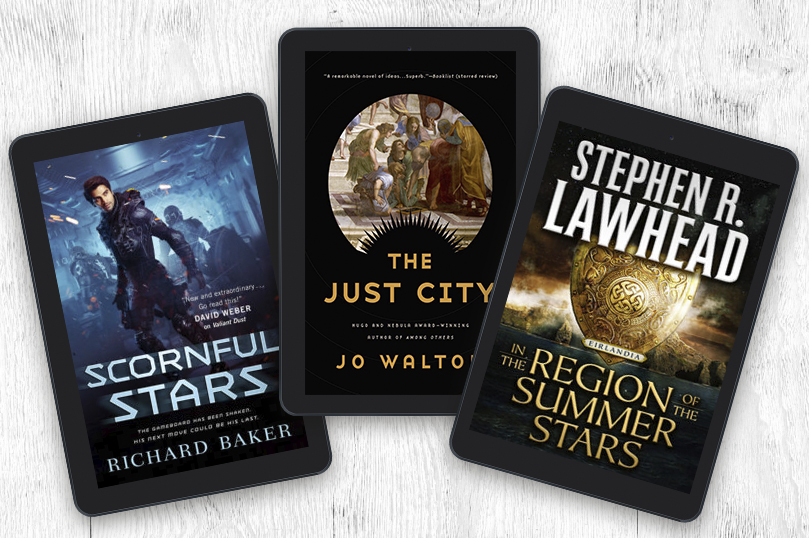
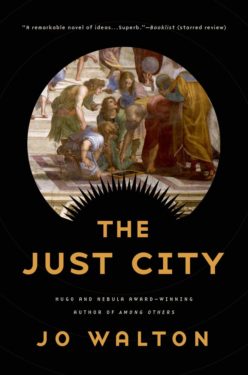 The Just City
The Just City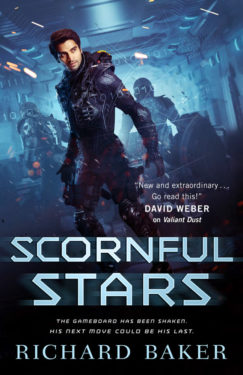 Scornful Stars
Scornful Stars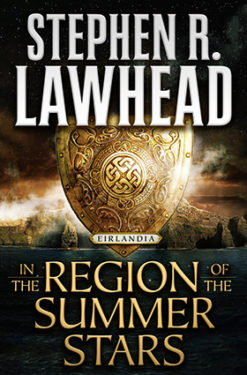
 My Real Children
My Real Children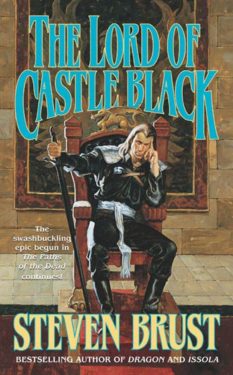 The Lord of Castle Black
The Lord of Castle Black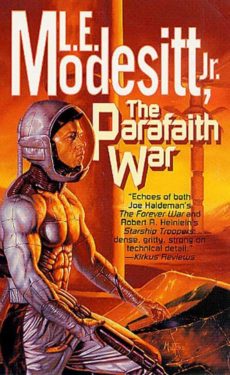 The Parafaith War
The Parafaith War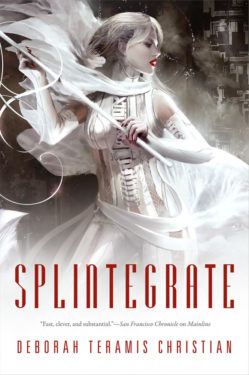 Splintegrate
Splintegrate